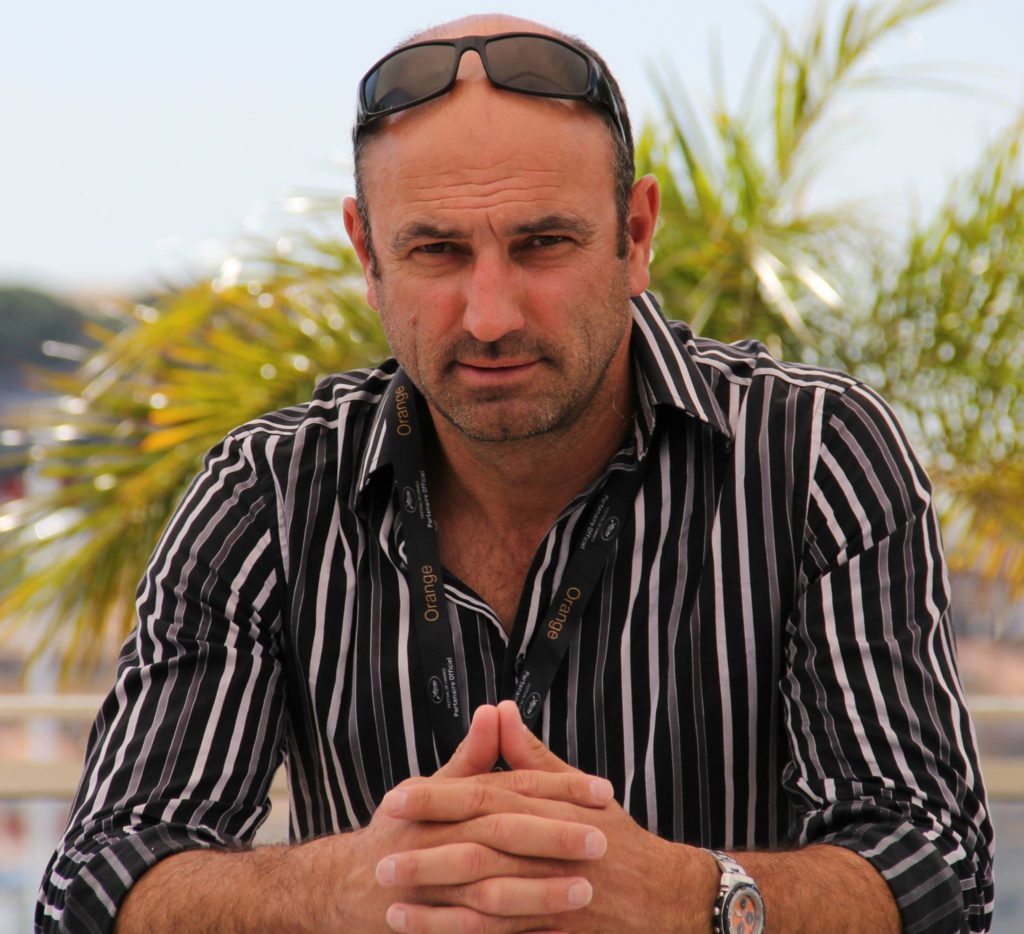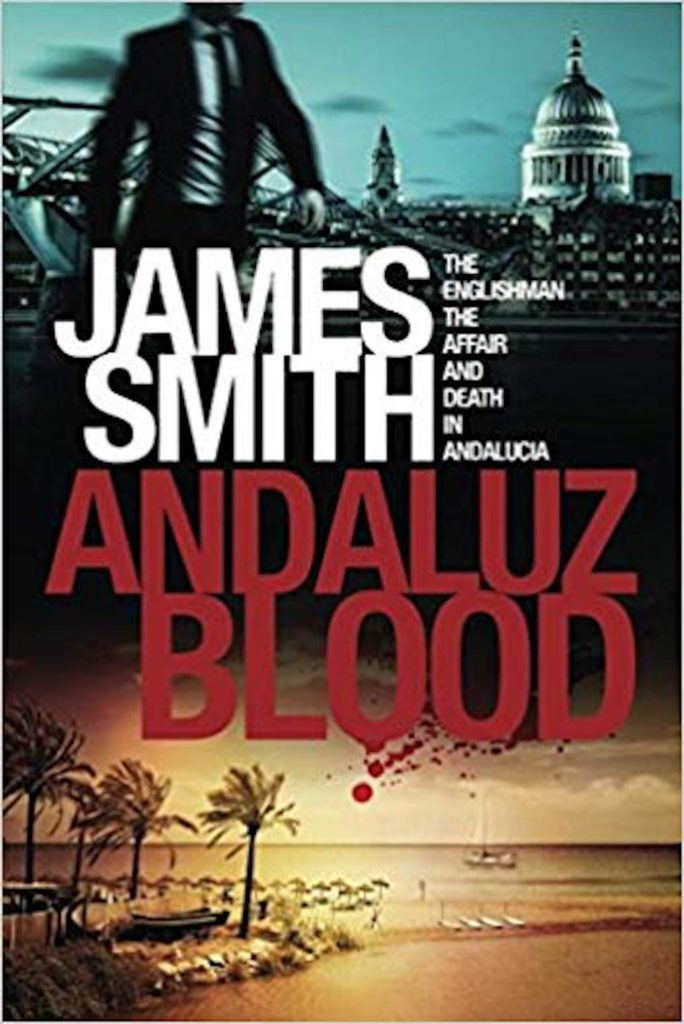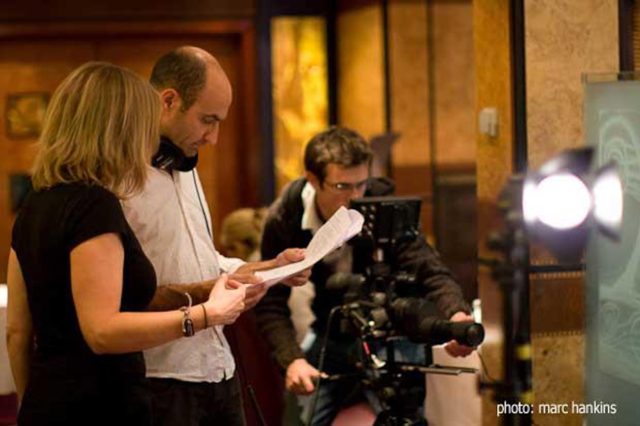Essex-raised film director James Smith, together with screenwriter Caroline Spence has been shaking up the indie film industry recently with their debut feature a crime drama by the name of ‘Do Something, Jake’. Together they head up Raya Films London. A British independent film company disrupting the movie industry. We caught up with James to find out about the start in the industry and his latest projects
Born in Surrey, England James was brought up in the USA and South Africa before his family returned to Essex in the late 1970s. After college, he embarked on a career in the computer business. He spent much of his time traveling and enjoying outdoor sports, and creative pursuits, like music, painting and stills photography. Digital advances in video inspired Smith to start creating sports promos and documentary films in 2004. His award-winning documentary Gentlemen of the Night (2006), his short film Keep Up If You Can (2009), which was selected from 3500 entries for Rutger Hauer’s “I’ve Seen Films” International Internet Contest in Milan, now seem like a mere prelude to his début award-winning feature Do Something, Jake (2018). The film premiered in September 2018 to rapturous applause at a packed Odeon Cinema in the Midlands, UK before a screening in London and being signed up for global distribution this June.
Your journey with Do Something, Jake has been quite extraordinary. Tell us more.
“The story behind the production of this film would make a movie in itself,” explains James Smith. “Post-production was a long and hard road, and by the time we were ready to screen the film, we didn’t know what we had. So, to get such a positive response from audiences and critics has been amazing.”
What are you working on right now?
“We have quite a slate of movies coming up. I am in post-production with two experimental thriller Agent Kelly and Cyberlante and we have started crowdfunding for ‘Surveilled’ today. So, it’s a busy schedule, but this is the life of people in this business – it’s important to have a number of projects rolling.”

Why crowdfund?
“Crowdfunding cuts out the red tape around getting finance for a film and the politics that come with getting traditional financial investment. While we are actively looking and welcoming investors it does in the meantime allow for freedom in who, when, where and with whom we create but having limited budget and resources come with its restrictions also. The best part of crowdfunding, however, is that it makes film more accessible to film lovers, it allows to build and engage with an audience that not just sees the finished product but follows the journey of the crew and really in many ways become part of the family. That for us has been the not only exciting but overwhelming and I mean that in the best sense.”
What/who originally turned you on to film?
“I grew up with an interest in sketching and painting and, later, this developed into working in stills photography. The advent of the digital video revolution enabled me to start experimenting with moving image. I used to go to the ‘drive-in’ movies with my parents when I was growing up in South Africa, so that inspired my interest in movies.”
You are also an author? What is the name of your book and the inspiration behind it.
“Yes, my novel Andaluz Blood I was written aboard my parents’ ten-meter yacht in Spain and is available on Amazon as paperback and kindle. The idea for Andaluz Blood came about during a period when my life was a mix of countless trips on the train into London and flights to Andalucía, southern Spain. An odd mix indeed. Without going into the details, and a prolonged story of my strange existence, this enabled me to draw inspiration for the story.”
“I’m rather keen on tales of everyday people caught up in dire predicaments, as this seems to allow us to relate more readily to the protagonists where scenes of domesticity or commuting humdrum are transformed into thrillers.”
When travelling into London on the c2c and similarly in Andalucía on the marina, I observed the daily grind in action and made mental notes. Did all of these commuters lead conventional lives, or did some have complex, maybe darker, tales to tell? I have no doubt they did – things are rarely straightforward, no matter what impression people give or what they may say. I observed local people in bars, out on the street, on their yachts. I also travelled into local villages and up into the mountains at various times of the day and night – making those mental notes. Indeed, all seemed civilised and pleasant for the most part, but there’s always something under the surface in any town or city in any part of the world.
“If I need a bit of inspiration, I’ll often seek out a seedy bar and have a look around. The guy in the bar with the tattoos. He had a package. Maybe just a present for his girlfriend … but then, what did he pass to that other guy? And, so the story unfolds!”

What has been your career high so far?
“I think winning an award for ‘Best Documentary’ for Gentlemen of the Nightis up there, but the recent rapturous reception at the premiere of Do Something, Jake comes close, along with winning ‘Best Feature’. Now the film being signed up for global distribution with the Meridian Releasing Group has been absolutely amazing.”
What is your take on women in film? Comparing the US & UK industry do we have sufficient women in front & behind the lens?
“I have the impression that women are more dominant in the US film business. I can immediately cite powerful female Americans such as Kathryn Bigelow, Sofia Coppola, and Barbara Broccoli as being prominent in the US film business, but it’s not so easy to name such people for Britain. I feel that there should be more women in all areas of film work. In my experience, women can do an equal or better job than men, and this often includes physical strength and stamina tasks. I come from a family of working career women (my mother, sisters) and my first boss was a tough women in project management, so if women are calling the shots, fine by me.”
Are British & US Films diverse enough in the type of roles available for women and when it comes to ethnicity? How is Raya Films approaching roles regarding gender and race?
“I think there should be more diverse roles for women, and avoiding stereotypes of moms, housewives, secretaries, etc. Women taking the lead in actions and decisions in storytelling comes down to the writing, and there is progress to be made. Similarly for ethnicity, progress is being made with, for example, Spike Lee’s work, and other directors/writers, but more thought and skill needs to be applied to writing so that people of varying social backgrounds, cultures, and ethnicities are integrated into stories naturally, without bias, and also without patronising or ‘box ticking’ simply to satisfy diversity standards. At Raya Films, we have no specific criteria, other than to treat hardworking and honest people of all backgrounds as equals. Our door is open to anyone if they have the right qualities (professionalism, enthusiasm, creativity, hard working), and we find that is an honest and fair way forward, and attracts a wide range of people of many age groups, ethnicities, and social backgrounds.”
For further details on Raya Films London Campaign visit: https://www.indiegogo.com/projects/surveilled-horror-film-2nd-campaign#/




